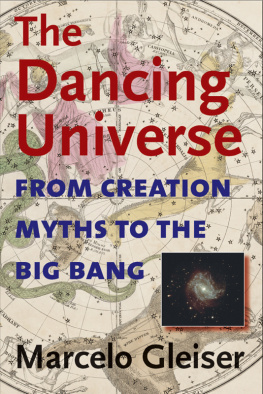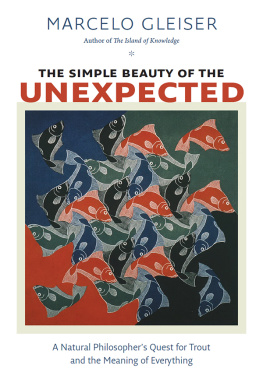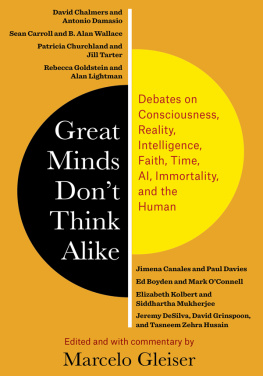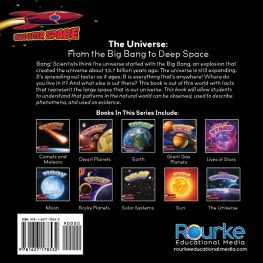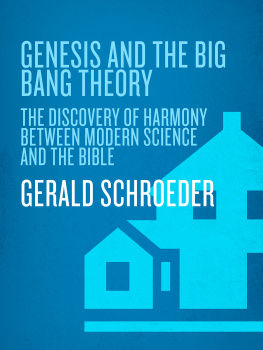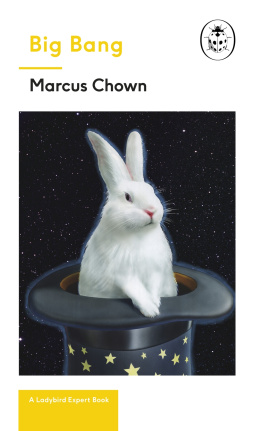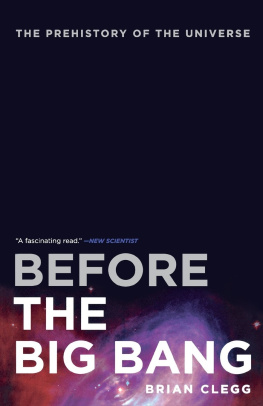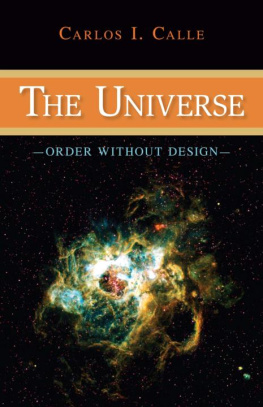Marcelo Gleiser - The Dancing Universe: From Creation Myths to the Big Bang
Here you can read online Marcelo Gleiser - The Dancing Universe: From Creation Myths to the Big Bang full text of the book (entire story) in english for free. Download pdf and epub, get meaning, cover and reviews about this ebook. year: 2012, publisher: Dartmouth College Press, genre: Religion. Description of the work, (preface) as well as reviews are available. Best literature library LitArk.com created for fans of good reading and offers a wide selection of genres:
Romance novel
Science fiction
Adventure
Detective
Science
History
Home and family
Prose
Art
Politics
Computer
Non-fiction
Religion
Business
Children
Humor
Choose a favorite category and find really read worthwhile books. Enjoy immersion in the world of imagination, feel the emotions of the characters or learn something new for yourself, make an fascinating discovery.
- Book:The Dancing Universe: From Creation Myths to the Big Bang
- Author:
- Publisher:Dartmouth College Press
- Genre:
- Year:2012
- Rating:4 / 5
- Favourites:Add to favourites
- Your mark:
- 80
- 1
- 2
- 3
- 4
- 5
The Dancing Universe: From Creation Myths to the Big Bang: summary, description and annotation
We offer to read an annotation, description, summary or preface (depends on what the author of the book "The Dancing Universe: From Creation Myths to the Big Bang" wrote himself). If you haven't found the necessary information about the book — write in the comments, we will try to find it.
Available again, with a new preface, a physicists exceptionally clear summary of 2,500 years of science and a fascinating account of the ways in which it often does intersect with spiritual beliefs Kirkus Reviews
The Dancing Universe: From Creation Myths to the Big Bang — read online for free the complete book (whole text) full work
Below is the text of the book, divided by pages. System saving the place of the last page read, allows you to conveniently read the book "The Dancing Universe: From Creation Myths to the Big Bang" online for free, without having to search again every time where you left off. Put a bookmark, and you can go to the page where you finished reading at any time.
Font size:
Interval:
Bookmark:
UNDERSTANDING SCIENCE AND TECHNOLOGY SERIES
FROM CREATION MYTHS
TO THE BIG BANG
MARCELO GLEISER
DARTMOUTH COLLEGE PRESS
Hanover, New Hampshire
Published by University Press of New England / Hanover and London
To the memory of my parents
DARTMOUTH COLLEGE PRESS
Published by University Press of New England,
One Court Street, Lebanon, NH 03766
www.upne.com
1997 by Marcelo Gleiser
Preface to the 2005 Edition 2005 by Marcelo Gleiser
Originally published in cloth in 1997 by Dutton, an imprint of
Dutton Signet, a member of Penguin Putnam, Inc.
First Dartmouth College Press/UPNE paperback edition 2005
Library of Congress Control Number 2004113702
ISBN13: 9781584654667
ISBN10: 158465466X
eBook ISBN13: 9781611683950
All rights reserved. No part of this book may be reproduced in any form or by any electronic or mechanical means, including storage and retrieval systems, without permission in writing from the publisher, except by a reviewer, who may quote brief passages in a review. Members of educational institutions and organizations wishing to photocopy any of the work for classroom use, or authors and publishers who would like to obtain permission for any of the material in the work, should contact Permissions, University Press of New England, One Court Street, Lebanon, NH 03766.
The Library of Congress has cataloged the original edition as follows:
LIBRARY OF CONGRESS CATALOGINGINPUBLICATION DATA
Gleiser, Marcelo.
The dancing universe : from creation myths to the big bang/
Marcelo Gleiser.
p. cm.
Includes bibliographical references and index.
ISBN 0525941126
1. Cosmology. I. Title.
QB981.G57 1997
523.1dc21 9717670
I would like to express my deep gratitude to the friends and colleagues who took their time to read the manuscript, helping me make it into a better text. Freeman Dysons initial encouragement was really crucial to set me in the right direction. Rocky Kolbs influence as a friend, mentor (sorry Rocky, you are not that old, but ), and collaborator helped shape my career and this book. At Dartmouth, I learned a great deal from the comments and suggestions of Joseph Harris, Richard Kremer, and Kari McCadam. From physics to history to poetry, their contributions are reflected throughout this book. I would also like to thank my editor at Dutton, Deirdre Mullane, for her tireless efforts in making the original manuscript a more readable book; and my agents, Katinka Matson and John Brockman, for their advice and support.
To my children, Andrew, Eric, and Tali, for showing me how to always take a fresh look at the world and for injecting me with renewed energy every day. To Wendy, for her patience and understanding during the two long years it took me to make this book into a reality.
Finally, I would like to thank my father for teaching me to love the beauty around me and within other people.
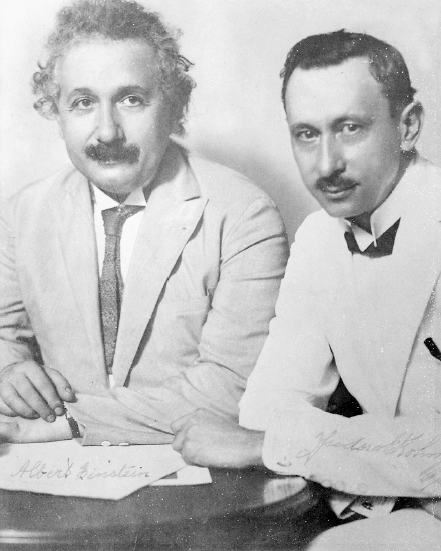
Albert Einstein and Isidoro Kohn, his host during a visit to Rio de Janeiro in 1925. This autographed photograph, which has remained in my family since then, became almost an icon as I devoted myself to the study of Einsteins contributions to our understanding of the Universe.
To write a book and see it printed is a privilege. To see it go through a new edition is an honor. I owe the final impetus to write The Dancing Universe to Freeman Dyson. When he was visiting Dartmouth in the fall of 1995, I asked if he thought a book dealing with creation myths and modern cosmology was something worth pursuing. At the time, I had written the first chapter about creation myths. After reading it he told me to go ahead but cautioned, Dont add speculative modern ideas. It will shorten your books usefulness, as most of them will probably be wrong. I did exactly that, resisting the temptation to write about inflationary cosmology, superstrings, extra dimensions, dark energy, and other juicy topics, even though they are an important part of my research (and some of them may be right after all). The book ends describing the first ideas concerning a quantum origin for the universe, a scientific version of the creation out of nothing mythic narrative from the seventies.
This new printing is faithful to the original version and to Dysons advice. Covering over two thousand years of scientific ideas is enough of a challenge for a few hundred pages. But the effort is well worth it, as these ideas make for a fascinating story, the story of our quest for meaning in a universe that seems quite indifferent to our existence.
Since its publication in 1997, I have used The Dancing Universe as the main text in a large physics class for non-science majors. Perhaps the reason why the students have greatly enjoyed it is that it is not written as a textbook. I present science as a narrative, a human construction that attempts to reveal the intricacies of the world around us. As we change, so does the narrative. As the narrative changes, it transforms us. Science provides an ever-evolving view of Nature. The universe we live in today is very different from the one Galileo or Plato lived in. It is also very different from the universe that people in the twenty-second century will inhabit. What is the same is our urge to understand, to make sense of our lives. As we inch forward, the universe keeps on dancing, carrying us in its arms. And with eyes wide open we watch in awe as we always have, and always will.
This book surveys the quest for understanding our origins and our place in this vast, mysterious Universe. For as long as history has been recorded humankind has asked the most fundamental question that can be asked, that of the origin of all things. As far as we know, every culture, past and present, has addressed this issue, arriving at various answers. From creation myths of prescientific cultures to modern cosmological theories, the question as to why there is something rather than nothing has inspired mythmakers and scientists, the religious and the atheist.
As we retrace the steps of this vast undertaking, we marvel at the manifold ways by which the human imagination has explained the mystery of creation. Beautiful metaphors and rich symbolism cross the boundaries between science and religion, expressing a true universality of human thought. This same universality, however, points to certain limitations of our imagination. The problem is that the sensorial perceptions and thought processes that we use to make sense of the world are bound by a polarized view of reality based on opposites such as day-night, cold-hot, female-male, matter-spirit, etc.; thus they can offer only a few logical ways to deal with what transcends this polarization, the Absolute from which all comes, be it conceived as God, a mythic cosmic egg, or the laws of physics.
Although scientific and religious approaches to the question of the origin of the Universe have very little in common, certain ideas are bound to reappear, even if draped in completely different clothes. Thus, I begin with an analysis of creation myths of various cultures and close with a parallel discussion of modern scientific ideas concerning the origin of the Universe. By classifying creation myths and cosmological theories according to how they answer this question, I hope to make clear both their overlapping points and their marked differences.
In between, we will examine how our understanding of nature and the Universe as a whole evolved hand-in-hand with the development of physics, from its origins with the pre-Socratic philosophers of ancient Greece, all the way to the discovery of quantum mechanics and relativity during the first three decades of the twentieth century, the cornerstones of modern cosmological theories.
Font size:
Interval:
Bookmark:
Similar books «The Dancing Universe: From Creation Myths to the Big Bang»
Look at similar books to The Dancing Universe: From Creation Myths to the Big Bang. We have selected literature similar in name and meaning in the hope of providing readers with more options to find new, interesting, not yet read works.
Discussion, reviews of the book The Dancing Universe: From Creation Myths to the Big Bang and just readers' own opinions. Leave your comments, write what you think about the work, its meaning or the main characters. Specify what exactly you liked and what you didn't like, and why you think so.

